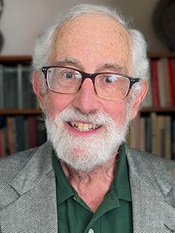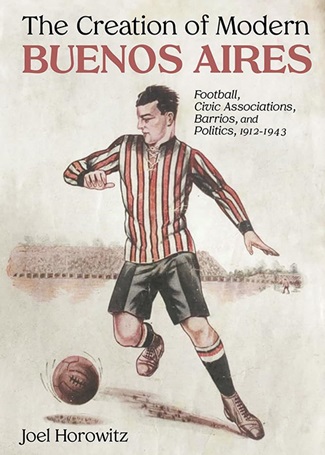May 02, 2024

A new book by Dr. Joel Horowitz, professor emeritus of History at St. Bonaventure University, examines the impact of civic associations on the culture and society of Buenos Aires and their ties to politics in the first decades of the twentieth century.
“The Creation of Modern Buenos Aires: Football, Civic Associations, Barrios, and Politics, 1912-1943,” published by the University of New Mexico Press, focuses on a period that saw the emergence of the modern political system with true appeals to the voters, tremendous urban growth, and the solidification of a barrio identity.

Horowitz examines four types of organizations: football clubs, bibliotecas populares (popular libraries), sociedades de fomento (development societies that pushed for barrio improvements), and universidades populares (popular universities that provided practical training beyond the primary school level). All four types became important social centers and were connected to the political world. The book covers the period from the passage of a voting reform law in 1912, which made male citizen voting obligatory and fraud more difficult, to the military coup of 1943.
“The book shows how civic associations helped create the social world of the city, focusing especially on the part they played in the development of the sense of barrio,” Horowitz said. “These associations became vital links in the system of politics that emerged, providing politicians with opportunities to build connections to a variety of communities.”
Horowitz also demonstrates that even though these organizations were created by inhabitants to fulfill some of their needs and were generally founded on democratic procedures, they did not function as schools for democracy.
Horowitz taught in SBU’s Department of History from 1989 to 2016. He is the author of two other books: “Argentina’s Radical Party and Popular Mobilization, 1916-1930” and “Argentine Unions, the State, and the Rise of Perón, 1930-1945.”
______________
About the University: The nation’s first Franciscan university, St. Bonaventure University is a community committed to transforming the lives of our students inside and outside the classroom, inspiring in them a lifelong commitment to service and citizenship. Out of 167 regional universities in the North, St. Bonaventure was ranked #6 for value and #14 for innovation by U.S. News and World Report (2024).